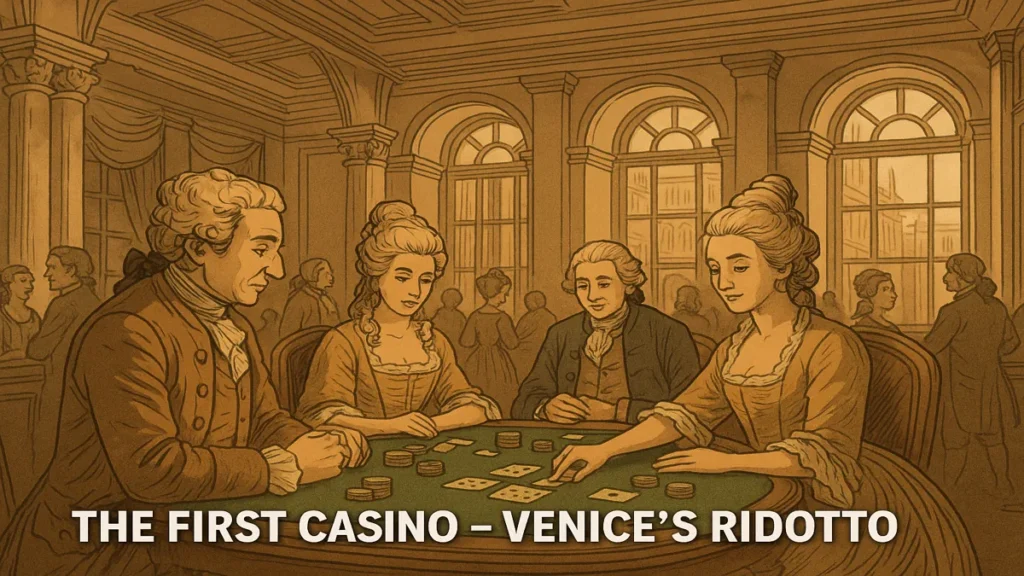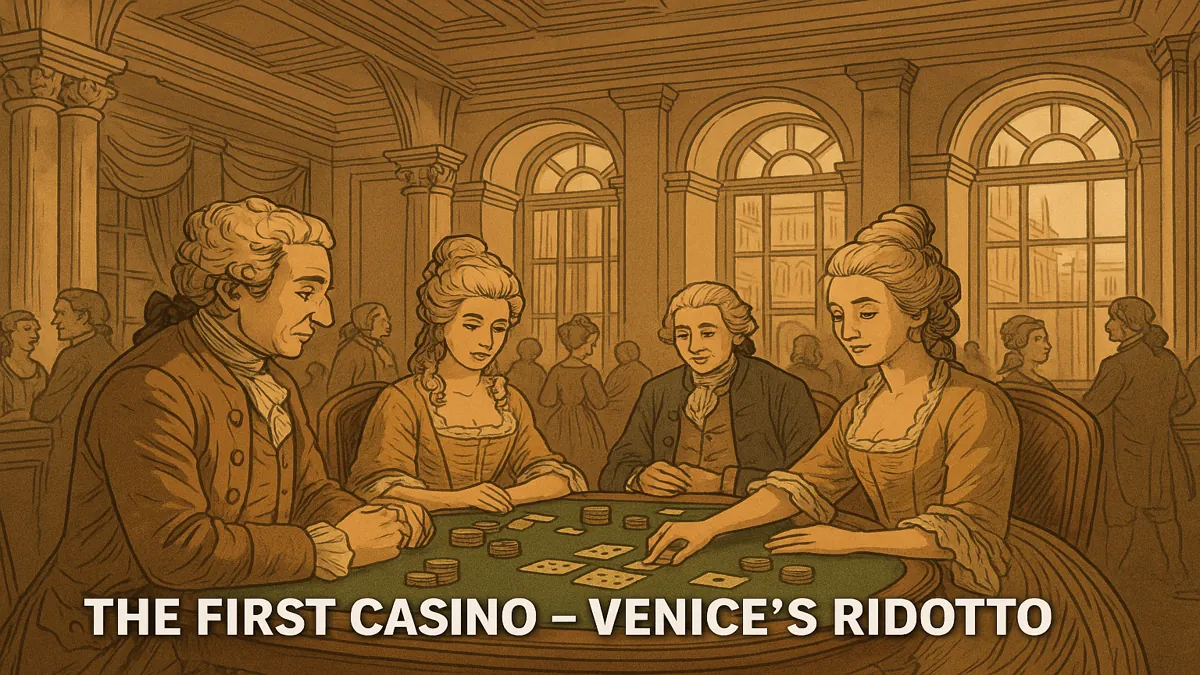The first casino in history—a regulated, public place where people gather to gamble—has evolved dramatically over centuries. But where did it all begin? The answer lies in the heart of Europe, in the city of Venice, Italy. The world’s first official casino was established there in 1638 and still holds cultural significance today.

Ridotto: The Birthplace of Public Gambling
Venice in the 17th Century
During the height of the Venetian Republic, gambling was a popular pastime among nobles and commoners alike. However, it often took place in unregulated private gatherings. To bring order and control, the Venetian government established the Ridotto (Italian for “private room”) as a public gambling house attached to the San Moisè Church.
A Government-Regulated Venue
Unlike the shady gambling dens of the time, the Ridotto was a state-sanctioned venue with strict dress codes and high-stakes rules. It was a tool for both entertainment and state revenue. The venue attracted Europe’s elite and became a symbol of refined leisure.
Closure and Legacy
Closing Its Doors
In 1774, the Venetian government closed the Ridotto, claiming it encouraged moral decline. However, the idea had already spread across Europe, inspiring similar establishments in France, Germany, and eventually Monte Carlo and Las Vegas.
Influence on Modern Casinos
The Ridotto’s legacy is seen in today’s regulated gambling establishments. From Las Vegas to Macau, the fundamental idea of a controlled, luxurious gambling environment can trace its roots back to 17th-century Venice. This long-standing influence highlights the importance of the first casino in history as a model for future gaming institutions.
Venice’s Enduring Influence
The Ridotto in Venice wasn’t just a gambling house—it was a cultural and economic milestone. It demonstrated how governments could harness the popularity of gambling for social and fiscal benefits. Today’s casino industry, now a global economic powerhouse, still carries echoes of its Venetian origins.
